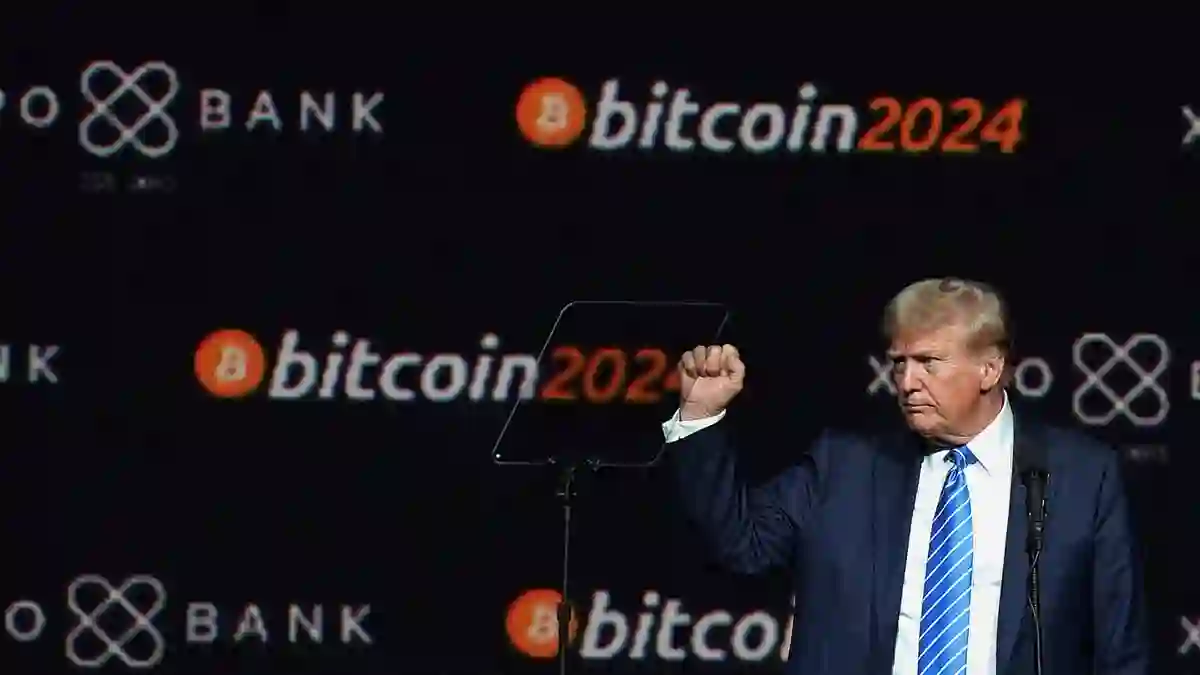In a political world often dominated by healthcare and taxes, cryptocurrency just took center stage—and President Donald Trump is claiming victory.
After weeks of tense negotiations and political back-and-forth, Trump managed to unify House Republicans to pass two groundbreaking crypto bills that could reshape the digital economy in the U.S.
Congress Gives the Green Light to Crypto Rules
On Thursday, lawmakers in the House approved two major bills: the GENIUS Act and the CLARITY Act. Both passed with support from both parties, a rare occurrence these days.
The GENIUS Act—short for Guiding and Establishing National Innovation for U.S. Stablecoins—lays out a new system of regulations specifically for stablecoins, a type of cryptocurrency backed one-to-one by real-world assets like the U.S. dollar or the euro.
These digital assets have grown massively in recent years, ballooning to a $250 billion market from just $130 billion in 2023.
But until now, the industry has been a bit of a Wild West, with no consistent rules on how these coins should be managed or backed.
Why Stablecoins Needed Guardrails
Stablecoins are supposed to be the “safe” side of crypto—but that hasn’t always been the case.
Some major players, like Tether (based in El Salvador), have been accused of not actually holding the cash reserves they claim to. The GENIUS Act aims to fix that.
Under the new rules, stablecoin issuers operating in the U.S. will need to show proof—real audits and actual backing for every digital coin they issue.
In short, if you’re giving people what looks like a digital dollar, you’d better have a real one to back it up.
“This legislation is going to make America the crypto capital of the world,” said White House Press Secretary Karoline Leavitt, echoing Trump’s long-standing crypto enthusiasm.
Trump’s Ongoing Crypto Crusade
This move isn’t just policy—it’s personal. Trump has made crypto a core part of his economic vision, even speaking at the 2024 Bitcoin Conference and appointing venture capitalist David Sacks as the White House’s new “AI Czar,” tasked with overseeing digital assets and innovation.
He’s also walked the walk: Trump co-founded a digital asset company with his sons—Donald Jr., Eric, and Barron—called World Liberty Financial, which even launched its own stablecoin named USD1.
The GENIUS Act is expected to be signed into law during a White House ceremony on Friday.
What the CLARITY Act Means for the Market
The second bill that passed, the CLARITY Act, tackles the other messy side of crypto—market oversight.
For years, companies in the space have complained about vague or conflicting rules, especially under the Biden administration and SEC Chair Gary Gensler.
This new bill assigns clearer responsibilities to both the Securities and Exchange Commission (SEC) and the Commodity Futures Trading Commission (CFTC), aiming to make it easier for companies to know who’s regulating what.
It’s a big deal for startups and investors who’ve long felt stuck in regulatory limbo.
The Senate is expected to review the bill later this year.
Everyday Crypto Use May Finally Get Easier
Alongside these big regulatory steps, Trump is also eyeing tax reform specifically for crypto.
One idea gaining momentum is the “de minimis” exemption, which would allow people to use crypto for small purchases—like buying coffee—without worrying about triggering a tax bill.
Right now, every crypto transaction counts as a taxable event, no matter how small.
That’s a headache if you’re trying to use crypto in daily life.
Senator Cynthia Lummis is leading a proposal that would exempt transactions under $300 (up to $5,000 annually) from taxes.
The bill also aims to eliminate double-taxation for crypto miners and provide clearer guidance on lending and staking digital assets.
How Politics Nearly Derailed the Bills
The road to getting these laws passed wasn’t smooth.
One major holdup came from Representative Marjorie Taylor Greene, who demanded the addition of a clause banning the Federal Reserve from ever launching its own digital currency.
She eventually got her way—those restrictions were tacked onto a different bill—clearing the path for the crypto legislation to pass.
A New Era for U.S. Crypto Policy?
These moves represent a major shift in how the U.S. government sees cryptocurrency.
Rather than trying to shut it down or ignore it, lawmakers are now working to build a clear regulatory framework that balances innovation, safety, and economic growth.
Whether you’re a hardcore crypto investor or just someone curious about using Bitcoin to buy lunch, this could be a turning point.
As Trump moves to sign these bills into law, it’s clear the digital economy isn’t on the fringe anymore—it’s becoming part of the mainstream financial system.
